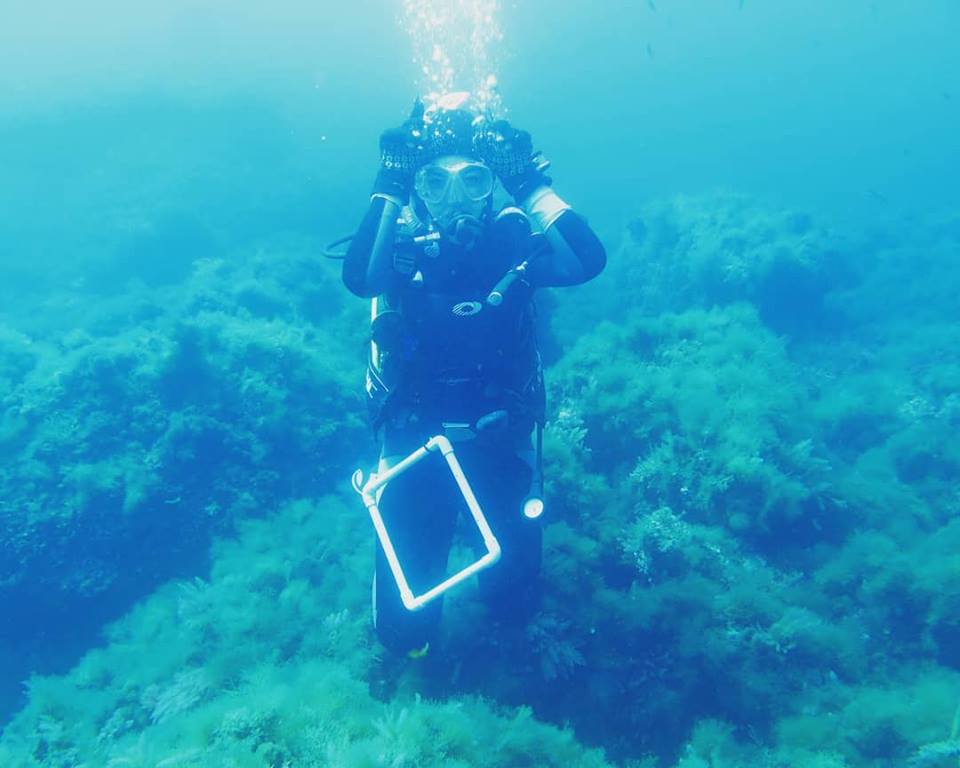
| Academic Year | 2019-2020 |
| a.sumner-hempel.19@abdn.ac.uk | |
| Institution | University of Aberdeen |
Biography
School: School of Biological Sciences
Project: Improving the current monitoring approaches of harmful phytoplankton in Scottish waters using molecular approaches
Supervisors: Dr Alex Douglas and Dr Sarah Helyar
Undergraduate Education: BSc (Hons) Marine Biology, University of Portsmouth
Postgraduate Education: MSc Applied Aquatic Biology, University of Portsmouth
Research: Scotland’s coastal waters are subject to natural and anthropogenic forces including seasonality, climate change and pollution; all these factors are known to influence Harmful Algal Blooms (HABs) occurrence. These occur when a species of phytoplankton or cyanobacteria reproduces exponentially until all nutrients have been utilized and the population collapses. HABs can have a negative impact on the surrounding environment and put economical pressure on aquaculture industries. In Scottish waters the aquaculture industry is worth £1.8 billion, representing over 40% of all food products. There are also consequences for human health. As marine bivalves are filter feeders, most consume toxic species of phytoplankton indiscriminately. As a result, toxins accumulate within the mollusc and may be consumed by humans with estimates of up to 60,000 intoxication events reported globally each year. Climate change and subsequent changes to marine plankton communities represent a risk to the stability of coastal ecosystems in Scotland and the impact on aquaculture, from toxic-producing phytoplankton, is a major concern. Using traditional morphological approaches for identification of economically and ecologically important phytoplankton species is challenging and time consuming as many are cryptic species but not all produce toxins. Using molecular methods such as high-throughput sequencing, my research aims to develop a method for quantifying species abundance, to create an assay to distinguish between organisms at a species level and to validate this method for use on wider planktonic communities to assess biodiversity. This research will contribute to our understanding of plankton biodiversity in Scottish waters and could be used in prediction modelling for bloom events.
- Fieldwork: I am currently working in the lab to isolate individual organisms from existing cultures held at Marine Scotland Science. In the new year I will be participating on research cruises around the North East coast of Scotland.
- Species: The genus I am primarily focusing on is Alexandrium which is a genus of dinoflagellate which is harmful to humans. Many species belonging to this genus are toxic and cause paralytic shellfish poisoning (PSP) when humans consume shellfish that have been exposed. They are also known to “bloom” creating a HAB which greatly increases the risk of exposure. One issue is that not all species produce this toxin but many of them look morphologically similar and it is very difficult to differentiate between them, therefore I am using them as a model species to develop a method to identify them at a molecular level. From this work, I hope to then move onto the wider planktonic community and begin to assess zooplankton biodiversity using similar methods.
- Methods: My project is primarily laboratory based at least in these early stages. Once I have successfully grown monocultures from individuals isolated from existing Alexandrium species then I will conduct a series of experiments on them such as creating a mock community to assess using high-throughput sequencing. I will also be working with a planktonic samples collected as part of a long-term monitoring programme (Scottish Coastal Observatories – SCObs) and hope to apply 3rd generation DNA metabarcoding to them to unlock the diversity of these planktonic communities.
External Collaborators:
Dr Eileen Bresnan, Marine Scotland Science
Dr Iveta Matejusova, Marine Scotland Science
Other:
- WHO website, for information about HABs
- CASE Partner: Marine Scotland Science
- My University profile
- Twitter: @AurielESumner





















































